Search for articles, topics or more
browse by topics

Search for articles, topics or more

Over 350 items of furniture and everyday objects, prototypes and models, paintings, drawings and studies explore his work as a designer and link it to his expertise as a theoretical architect and planner. All this is displayed in an imaginative pathway created in cooperation with the exhibition’s Art Director Morris Adjmi of MA Architects, a friend and associate of Rossi’s in New York.
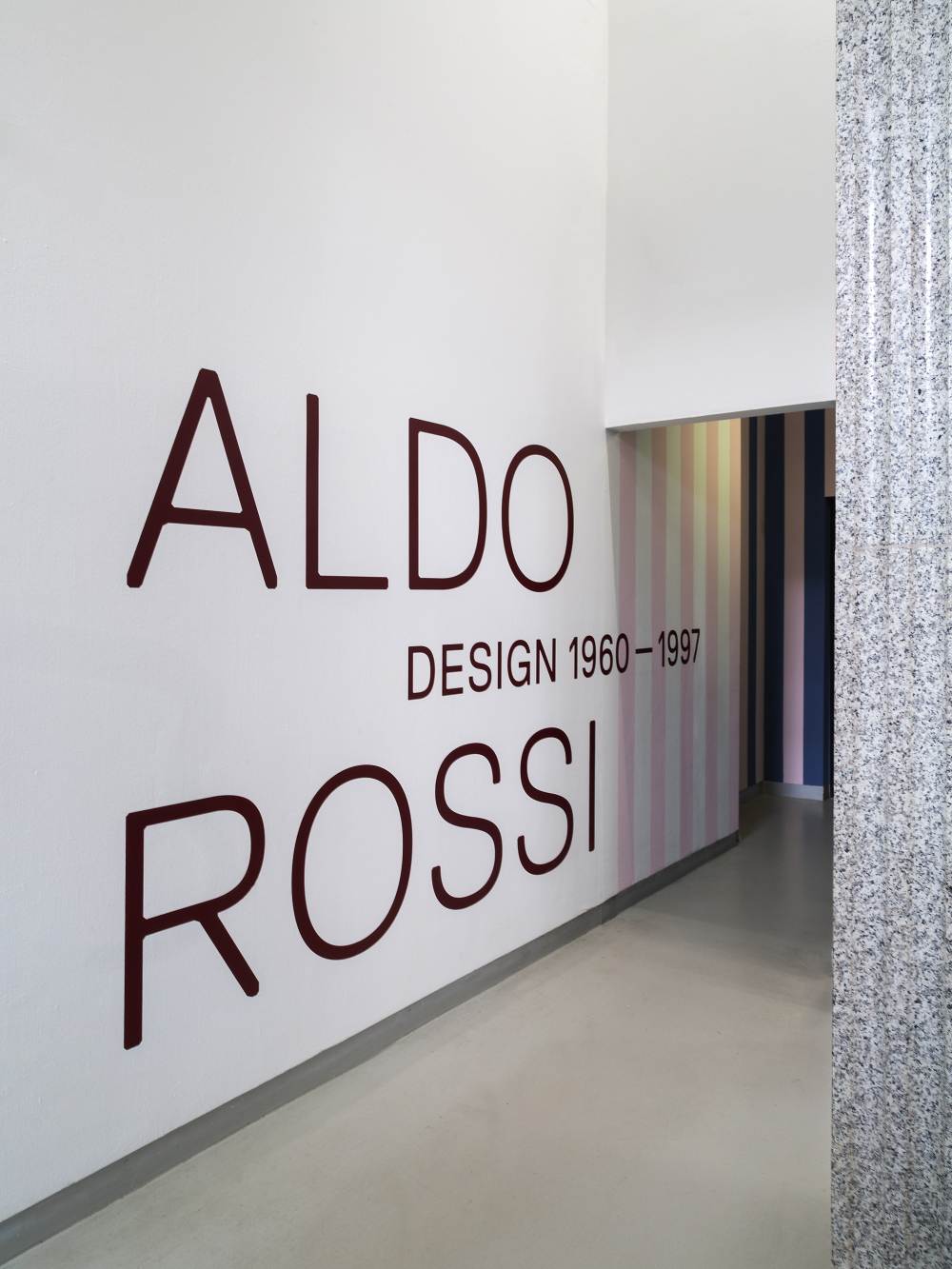
The exhibition highlights Aldo Rossi’s design universe in nine spaces, each representing a world that underscores the links between his graphic, handcrafted and industrial works, the references to his architectural designs and to his own private imagination, rich in cultural interests, to his intellectual and poetic cross-references and to the things he loved, from the American coffee pots that he wrote about in his Autobiografia scientifica, to the figure of Pinocchio, which appears in numerous drawings and in his designs of the Yatai (kiosk) for the Nagoya Expo in Japan.
The first space introduces the link between painted images, object reality and architecture that animates the whole exhibition: since the architect/designer’s drawings displayed on the walls, the furniture, tools and projects on show have become three-dimensional – from the Teatro del Mondo (1979) to the Milano chair (Molteni&C,1987), from Cabina dell’Elba (Molteni&C, 1980 and Bruno Longoni Atelier d’Arredamento, 1982) to the Percolator coffee pot (Alessi, 1979).
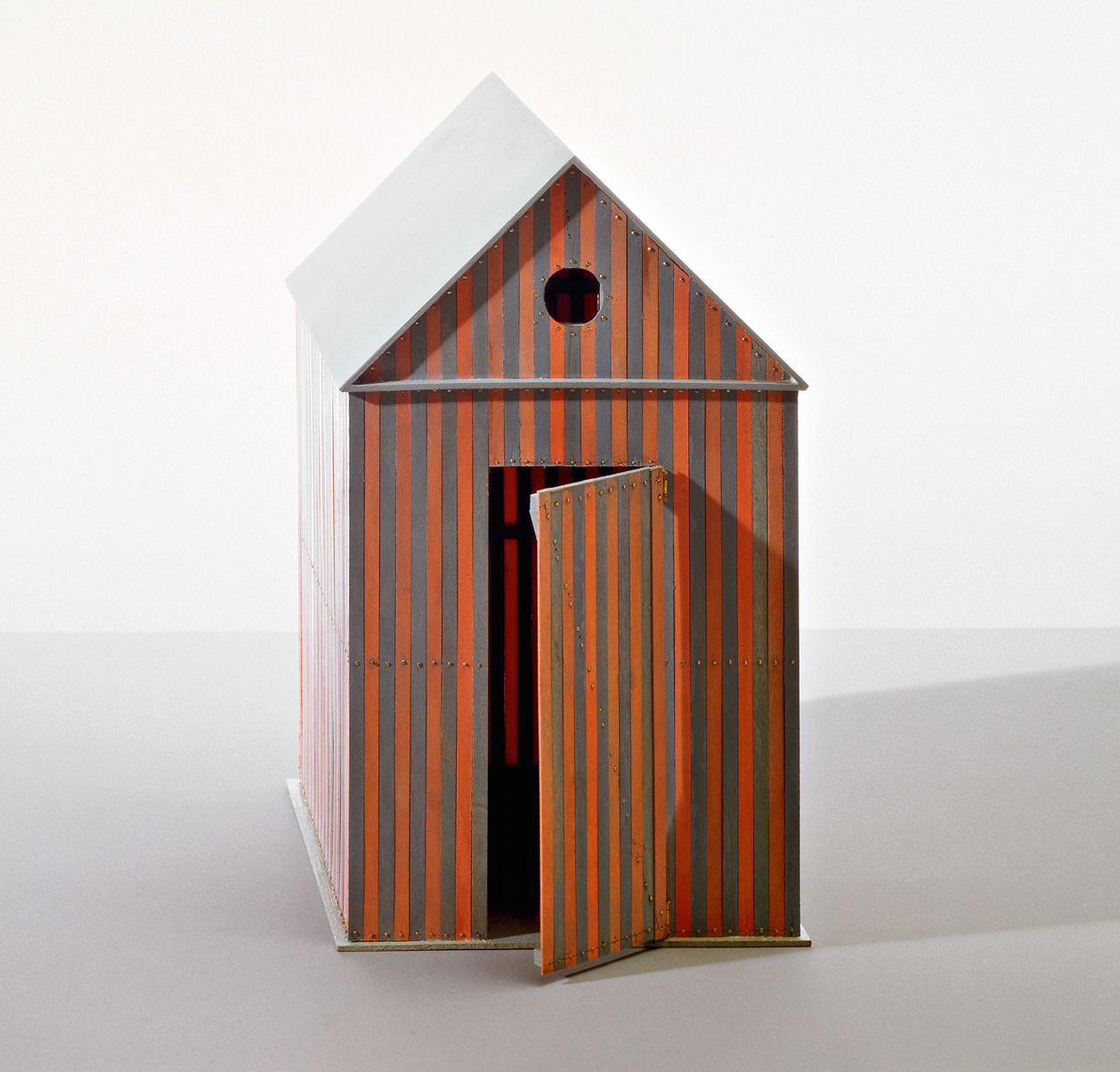 Molteni&C | Cabina dell’Elba (1980)
Molteni&C | Cabina dell’Elba (1980)
The second space focuses on prototypes and variants of an imaginary home panorama which introduces the reconstruction of the poetic interior of the third space: a metaphysical vision in which the Parigi series (UniFor, 1994) and the Piazza Tea and Coffee service (Alessi, 1983) are accompanied by the as yet unpublished water colours that depict Rossi’s Milan home, in via Rugabella.
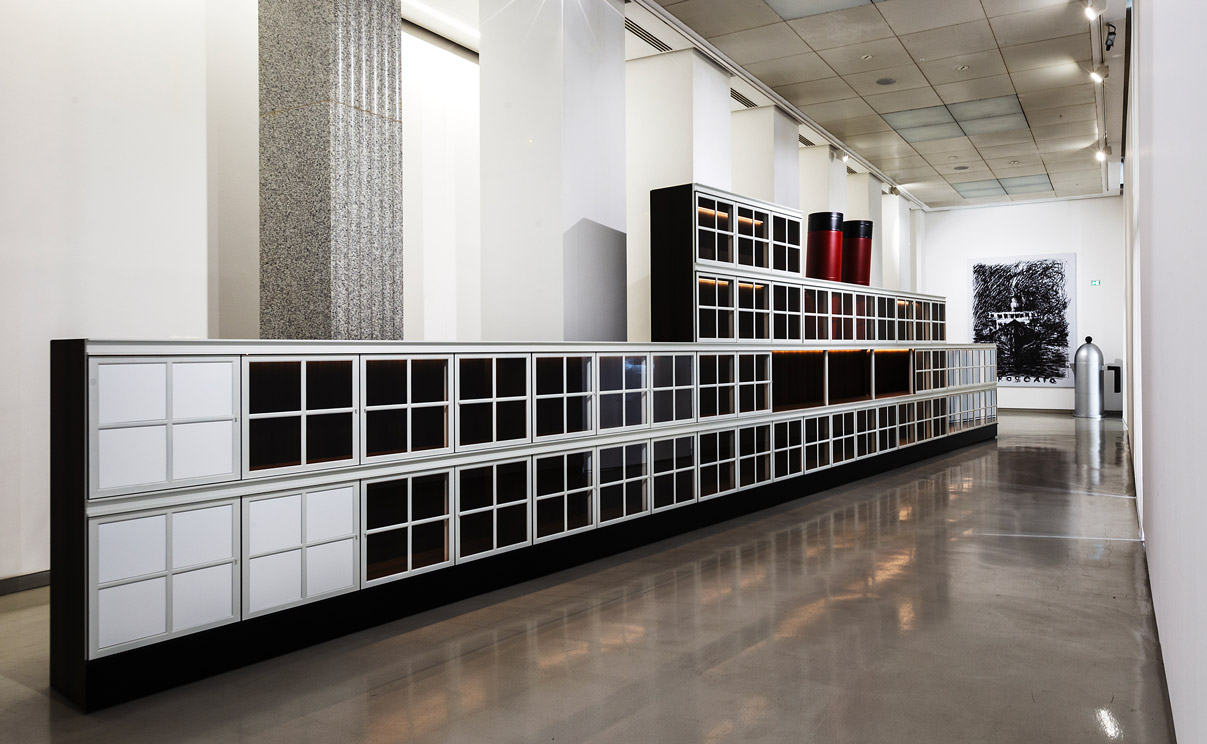
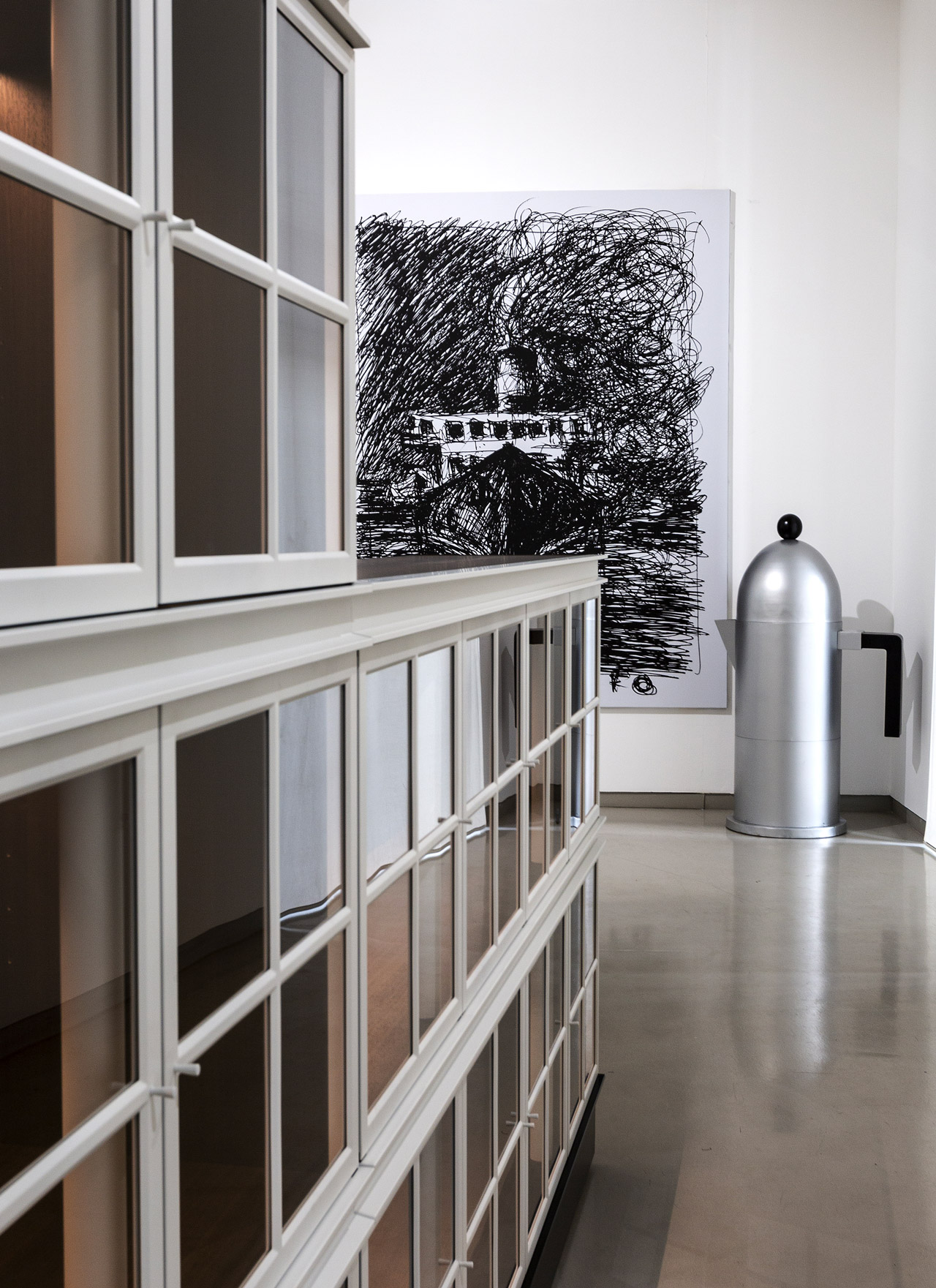
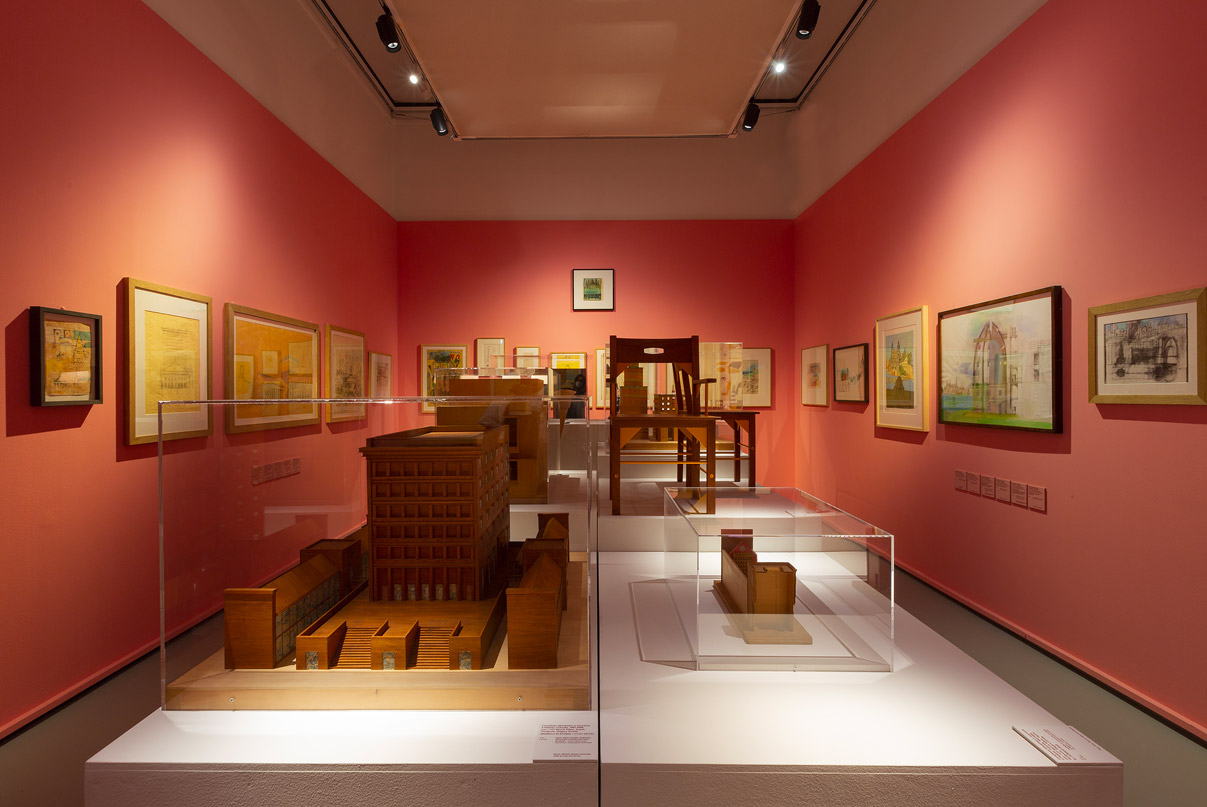
Moving on, a variety of products related to the cubic shape that recall Modena’s San Cataldo cemetery leads on to the fifth space which addresses the subject of classic “Apollonian” figures. Spheres, cones, pyramids and triangles reappear in the prototypes for Richard-Ginori, in the architectonic plants of the Monumento ai Partigiani in Segrate and of the Fagnano Olona school, in the rugs made with ARP Studio in Sardinia (1986) as in the wooden marquetry of Bruno Longoni Atelier d’arredamento (1997).
The next two spaces illustrate, on the one hand, the handcrafted and technical aspects of furniture production – chairs, armchairs, large items of furniture and their material and colour variants, from the Papyro desk (Molteni&C, 1989) to the Tabularium coffee table (Up&Up, 1985) – and, on the other hand, Rossi’s private space. A personal and intimate place where his own furniture and objects blend with others that he collected – the famous American coffee pots mentioned in his Autobiografia scientifica, a print by Giovanni Battista Piranesi, the 19th century sideboard that inspired his design.
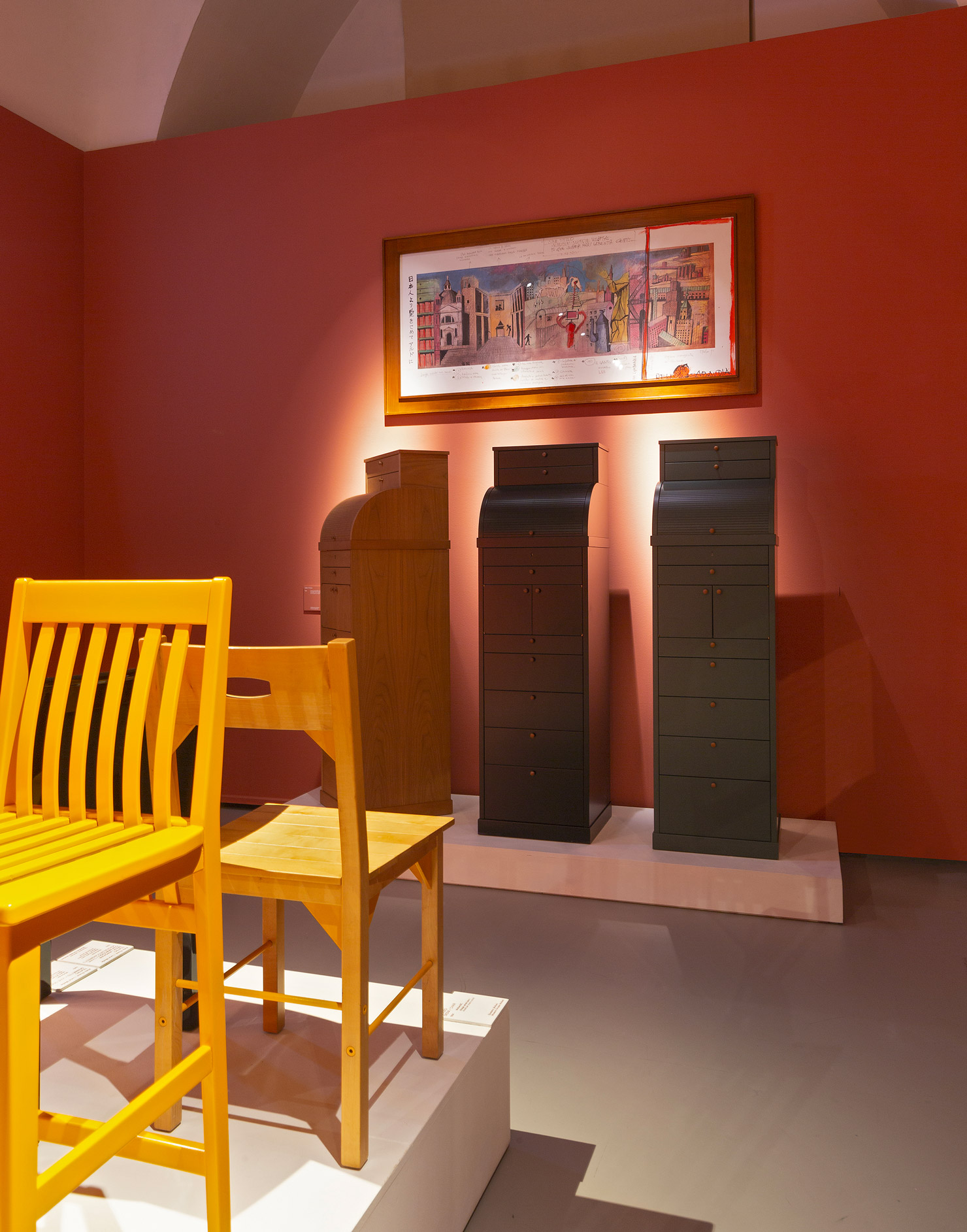
Rossi’s relationship with architecture, evident throughout the exhibition, is predominant in the space featuring furniture that he designed for some of his buildings: the seat for the Teatro Carlo Felice in Genoa (Molteni&C|UniFor, 1990) or the Museo seat made for the Bonnefanten Museum in Maastricht (UniFor, 1994), just to mention a few.
The magical and mysterious presence of the Teatro del Mondo, which brings the exhibition to a close, recalls Rossi’s temporary wooden constructions – from the beacon to the cabin, to the floating theatre, finally circling back to the space featuring his initial works.
The Aldo Rossi. Design 1960-1997 exhibition stems from the desire to create an unprecedented and unexpected, imaginative and spectacular story that moves between form and use, classicism, irony and metaphysics, highlighting manufactured articles and the excellence behind their design and production; as Rossi wrote: “our furniture, or at least mine, would still be pure fantasy if it were not for the accurate skills of our technicians and manufacturers. But fantasy and technique go, inseparably, hand in hand, with one frequently propping up the other.”





A two-dimensional representation, both visual and graphic, of a story spanning almost a century: this is the essence of the Museum 2D exhibition, curated by Ron Gilad.
Raw elegance of mineral and earth in the new Elemental exhibition curated by KALPA at the Vincent Van Duysen-designed Pavilion
To celebrate 90 years of Molteni&C, Rizzoli New York has published Molteni Mondo – An Italian Design Story, a book that is on sale worldwide from September 2024.
Thanks for your registration.